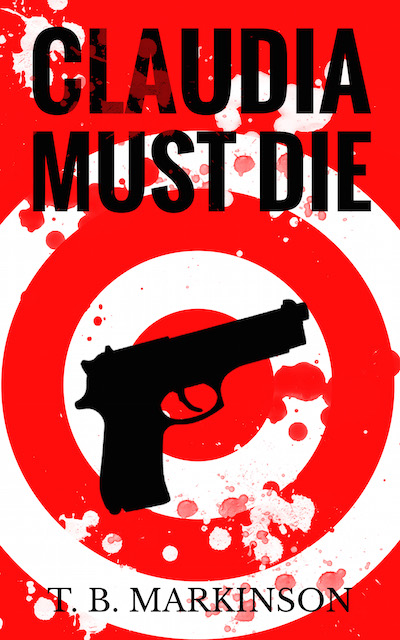
Image reproduced under creative commons license. Source: http://www.flickr.com/photos/massimobarbieri/
Picture this. You’ve spent weeks, months, possibly years pulling together the first draft of your novel. Having let it sit for a month or so you finally read it through. You discover poorly written passages along with gems that make you wonder if you actually wrote the words yourself. There are slow, dull passages that need removing along with scenes that race through so fast you can hardly catch your breath. All of these problems can be dealt with during the edit but there is one issue troubling you more than any other, it’s just not original.
According to Christopher Booker there are only seven basic plots. This is open to some debate but it’s true that many stories follow a similar structure, and with so many stories having already been written, the challenge for any writer is how to make their story unique?
The good news is that just because your basic structure is the same as other stories, it doesn’t mean you can’t make it unique. Most western music from the last 300 years has been written with just seven basic notes (twelve if you include semitones), yet the level and diversity of that music is vast. And you don’t have to change everything to differentiate your work. Sometimes just a few tweaks here or there can turn a generic piece of work into something different.
In recognition of the seven notes and seven plots, here are seven changes you can make to your novel to help it stand out, whatever stage it’s in. The list is by no means a comprehensive list but hopefully will get your thinking about potential improvements to your work in progress.
1 Change your protagonist’s gender or sexuality
There are few gender specific roles left in life yet many of us, especially us men, start writing with the old gender roles in mind. When plotting Second Chance, for example, the politician was originally a man. There was no reason for this, other than I’m male and I didn’t really think too much about it. It was just laziness on my part. However, I realised very early on that the character would be a much more interesting if it was a woman. With the addition of one letter, he became a she and Stephanie Vaughn was born.
And you shouldn’t necessarily be restricted to male or female. According to research there are over 700,000 people in the US alone who identify themselves as transgender, ranging from people born with both male and female genitalia to those of a mind of one gender trapped in the body of another. Each situation can bring variety and interest to your novel.
Then there is a character’s sexuality. A significant section of the world’s population isn’t purely heterosexual and there is no reason for your characters not to reflect this.
The danger here, as with other suggestions I make, is to either take a tokenistic approach to these choices or to make the gender or sexuality the sole focus of the story as opposed to being just one part of who the character is. It’s tempting to overly highlight any differences, or try to have the character revert to heterosexual male behaviours in an attempt to show they are the same or as capable as the gender stereotype (I see this a lot with male writers looking to write strong female characters for example). Unless you have first hand experience of what you’re writing, I urge you to be sensitive and do your research, but don’t be afraid to improve your story by including a more diverse cast.
2 Think Location
Where is your novel set and why? Did you make the choice because it was somewhere you felt comfortable with, or because many other novels have similar settings. A great way to make your story different is to set it somewhere different to other similar stories. Some novels add in exotic locations for a bit of spice, but having your story set in a completely different culture or location can make your story unique.
Many fantasy novels are set in a quasi western medieval world, yet I’ve just finished reading The Lions of Al-Rassan, a unique and fascinating book made so partially by being set in a fantasy version of the fall of moorish Spain.
Location doesn’t just have to be a place. Second Chance is a dystopian novel, but I didn’t want it to be set in an apocalyptic setting like many others. I have faith in humanity to pull back from any self-made disaster, so I wanted to set it in a world returned to ‘normality’ after coming close to destruction. The truth of how that came to happen is the central idea of my novel.
3 Subvert genre tropes
In many fairytales the handsome prince rescues the princess. But why can’t the princess rescue the prince, or the prince rescue a prince for that matter? Why does the prince have to be handsome, or even a prince?
Every genre has its tropes. With horror the victim always goes down into the cellar alone, in fantasy it’s the common boy fated to save the world, and we’ve all heard of the maverick cop or the introverted computer geek. Look at your first draft. Does it fall into the same trap? Understanding the tropes of your genre and turning them on their head is a great way turning the mundane into the exciting.
4 Change your protagonist’s race or nationality
The majority of writers create characters of a similar race or nationality as themselves, especially with their first book. However, as with gender and sexuality, this is mostly done as default rather than as a specific choice. Look at your characters again. What if your main characters were of a different race or nationality? Would this improve anything or increase interest? If your book is set in the UK and your main character was white, what would happen if you changed that to somebody of Indian origin, or Lebanese? What would this add to your story?
5 Swap violence for intelligence
One of the easiest ways of adding drama into a book is to add action and violence, especially in some genres, but action doesn’t have to be physical. The sparring of minds can be just as entertaining. Columbo was an incredibly successful, long running television detective series but not once did it resort to car chases or shoot-outs, yet millions watched it each week.
Resolving conflict with methods other than violence can be an incredibly effective tool, especially when writing in a genre where violence is the norm (like thrillers, fantasy etc) and there is the threat of violence hanging over the scene. It also means if and when something violent does happen, it has more impact.
6 Play with point of view and tense
Majority of novels are written third person past tense, although first person present is becoming more popular. Many of us choose our point of view and tense by default, but there is no reason why you can’t change this.
Changing point of view or tense within a novel can be a very good way of giving the reader a different experience, and although this should be used with caution it can add major dramatic effect. If you want to make it even more personal, write in the second person (you did or you do). The danger is you’ll put readers off but if done well you can trick the reader into believing the book is all about them.
7 Change the style and tone of your novel
Some of the most successful novels of recent years became so because the author wrote in an unexpected style. The late Sir Terry Pratchett combined fantasy with satirical comedy to great effect. The zombie horror novel, World War Z, stood out partly because it was written in the style of a diary, rather than as a straight out novel. We need to talk about Kevin is written as a series of letters from Kevin’s mother to his father.
What about your novel? Does it follow the style of all the others in it’s genre? Changing a novel’s style, as with changing its tense and point of view, is not a small task, but it may be the one thing to make your novel stand out from the rest.
So what have I missed? Do you have any tips on ways to make your work stand out from the crowd? I’d love to hear from you.
Do you like intelligent thrillers? If so, join my mailing list and get one of my 5-star rated near-future dystopian thrillers absolutely free. The mailing list is guaranteed spam free and I will only contact you if I have a new book launch or an exclusive short story to share. To sign up, please click here.







